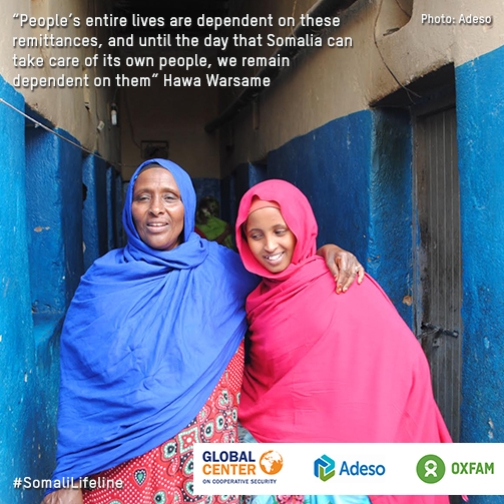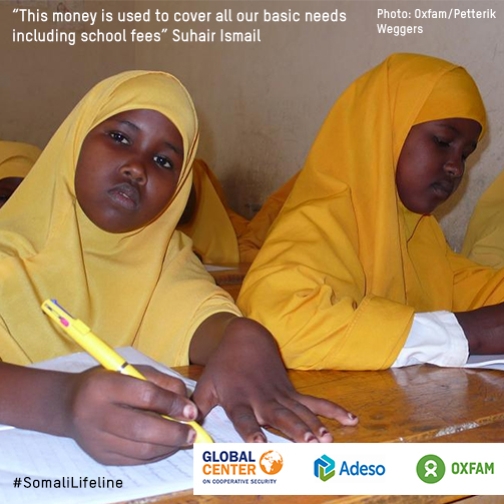Bank account closures are threatening the lifeline that many Somali families depend on.
The small amounts of money that members of the Somali diaspora send their loved ones comprise Somalia’s most important source of revenue. Remittances to Somalia represent between 25 and 45 percent of its economy and are greater than humanitarian aid, development aid, and foreign direct investment combined. Remittances empower women and help give young men alternatives to fighting in armed groups. The money is the country’s lifeline.
But this system is now threatened. Here’s a primer on what’s been happening and what it could mean for countless families.
What is the problem with remittances?
Unfortunately, Somalia lacks a formal banking system. So, Somali-Americans rely on money transfer operators (MTOs) to safely and legally deliver money to relatives and friends in Somalia. These small companies need bank accounts in order to wire the money abroad. But banks have been steadily closing the accounts of Somali MTOs in a number of countries, including the US, the country from which the most money is sent.
Why is the situation so urgent now?
California-based Merchants Bank, the main bank transferring money bound for Somalia, has closed the accounts of Somali MTOs in the US. The MTOs are scrambling to find ways to maintain the lifeline. Bank account closures have made business difficult for MTOs for years, but now, for the first time, are significantly affecting the flow of money from the US to Somalia.
Merchants first announced some closures during the summer, then reversed the decision and worked with federal regulators to keep the accounts open through the fall and early winter. Then, on February 6, the bank switched gears again, finally closing the accounts of all Somali MTOs.
How has the closing of the accounts affected Somalis both here and in Somalia?

In the immediate future, the options will only diminish. MTOs say that closures will resume in the coming days, and the system they have put in place to stay open—such as transferring suitcases of cash to Dubai in person—will not last beyond the next two months. Additional account closures, including those with First American Bank in Chicago, second to Merchants in facilitating remittances, will reduce options further.
What alternatives do Somalis here have for sending money to their families back home?
Presently, most people are still able to send money to Somalia. But in many cases, they will be unable to use their company of choice, which in some cases is the only company present where their loved ones live. Moreover, the availability of money transfer services is fluctuating rapidly and could be eliminated altogether, at very little notice.
Who is working to change this situation and what are they doing?
Somali-Americans around the United States are organizing in their communities to demonstrate the need for government intervention. Oxfam, Adeso, (an international humanitarian and development organization founded by Somalis) and others are standing in solidarity with these groups and supporting them wherever possible. They are already having an impact: in response to public demand, members of Congress have written to the Obama administration requesting a high-level meeting with representatives of numerous federal agencies. That meeting will take place on February 26.
What is the best solution to this problem and what can I do to help?

In the short-term, a stop-gap solution is needed to ensure that Somali-American MTOs can continue to connect members of the diaspora with their families in Somalia. With banks no longer willing to sufficiently provide this service, government intervention is urgently needed. The intervention can take any number of forms, but most important is that the Obama administration—namely the departments of Treasury and State—take responsibility for the situation and demonstrate the necessary resolve to ensure that money continues to flow through safe and legal channels to the people who depend on it.
You can help now by demanding action by the Treasury Department and signing this petition in support of hard-working Somali-Americans trying to help their loved ones.


